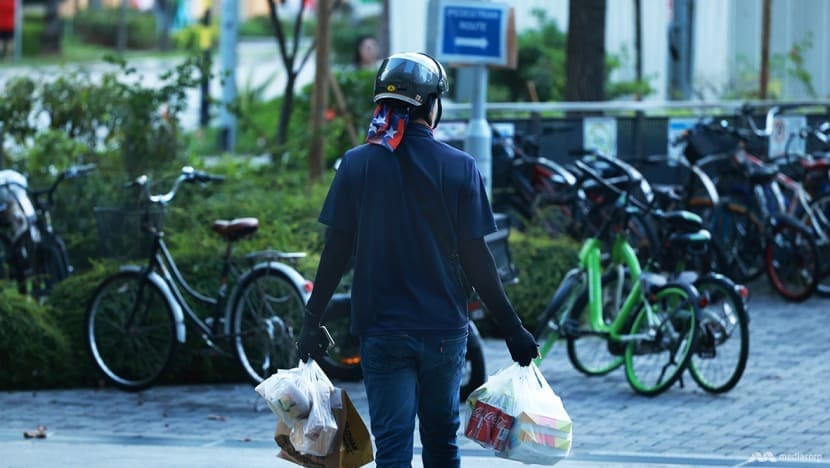Commentary: Consumers might have to pay more for their rides and deliveries. It’s a price worth paying
BookmarkShareAdvertisement
Commentary
Commentary: Consumers might have to pay more for their rides and deliveries. It’s a price worth paying
Numbering over 70,000, platform workers play critical roles in Singapore's economy, says the Lee Kuan Yew School of Public Policy’s Terence Ho.
A man making food deliveries on Aug 19, 2024. (Photo: TODAY/Raj Nadarajan)
Listen to this article
6 min
New: You can now listen to articles.

This audio is generated by an AI tool.

Terence Ho
12 Sep 2024 06:00AM
BookmarkShare
SINGAPORE: Many of us rely on food delivery or ride-hailing services on a regular basis. Numbering over 70,000, platform workers play critical roles in our modern economy.
According to the e-Conomy SEA 2023 report, Singapore’s digital economy is expected to expand robustly in the coming years, outpacing GDP growth. In tandem, there is likely to be sustained growth in the demand for platform workers.
ADVERTISEMENT

